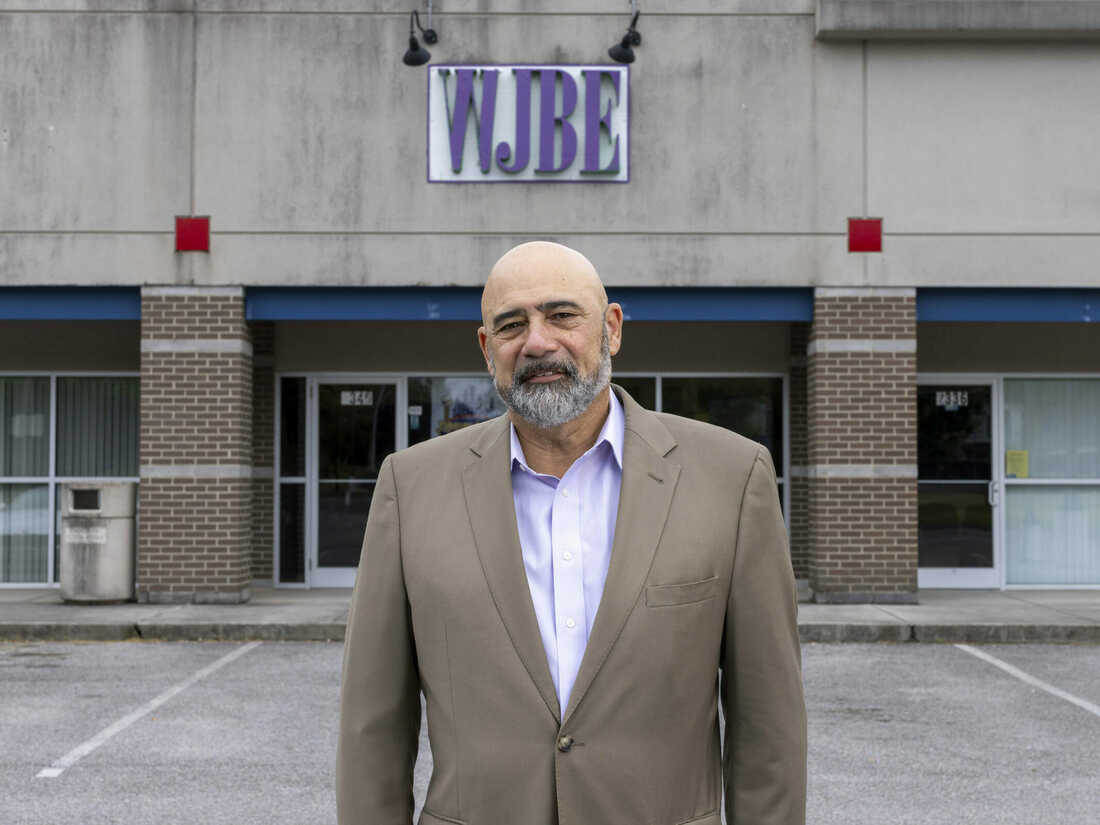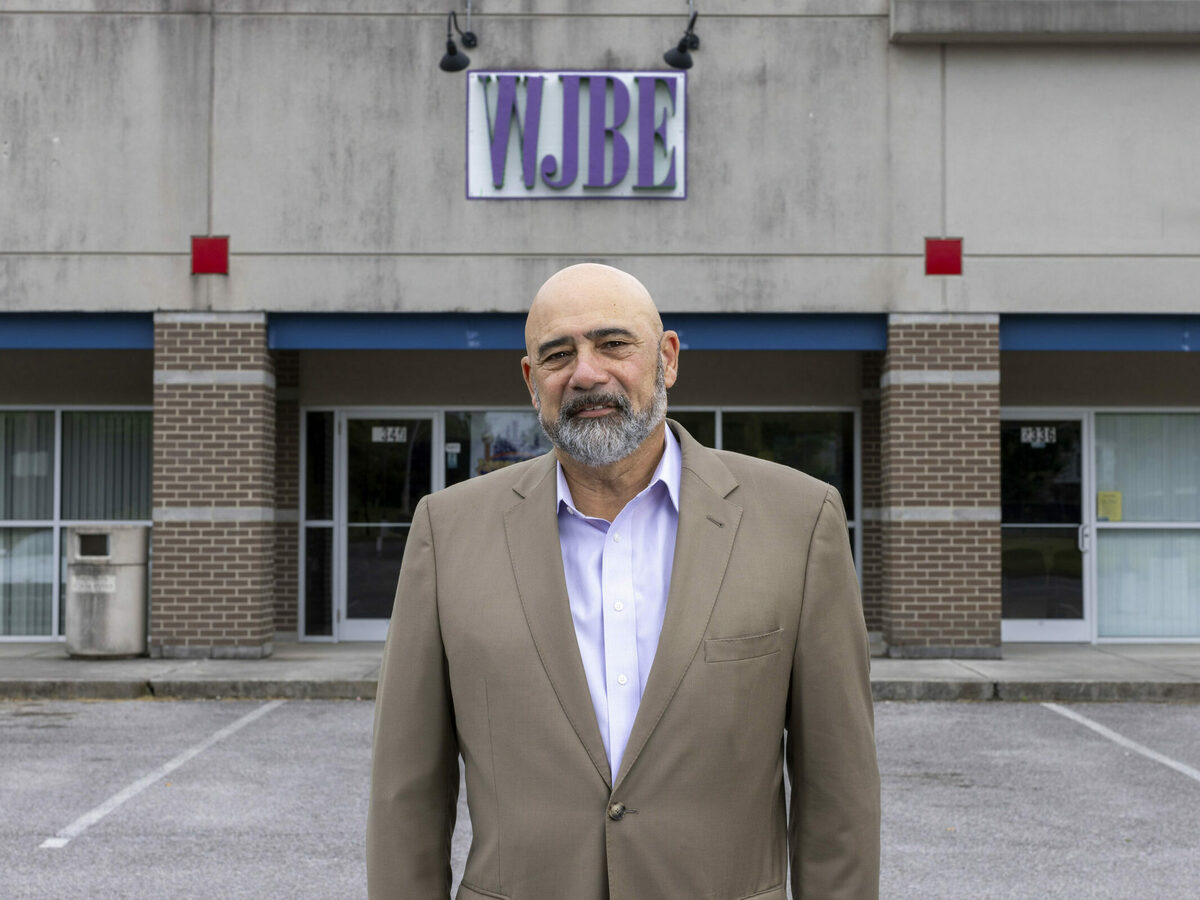
[ad_1]

Joe Armstrong, the proprietor of WJBE, is proven exterior the station. A Federal Communications Commission choose rejected an effort by the company to strip the license of WJBE 99.7 FM/1040 AM — whose name letters pay tribute to the unique WJBE’s proprietor, the Godfather of Soul, James Brown — Knoxville’s solely Black-owned radio station.
Institute for Justice
disguise caption
toggle caption
Institute for Justice

Joe Armstrong, the proprietor of WJBE, is proven exterior the station. A Federal Communications Commission choose rejected an effort by the company to strip the license of WJBE 99.7 FM/1040 AM — whose name letters pay tribute to the unique WJBE’s proprietor, the Godfather of Soul, James Brown — Knoxville’s solely Black-owned radio station.
Institute for Justice
A Federal Communications Commission choose rejected an effort by the company to revoke the published license of WJBE 99.7 FM/1040 AM, Knoxville, Tennessee’s solely Black-owned radio station — permitting the station to proceed broadcasting.
In a ruling handed down on Sept. 14, a choose dominated that WJBE’s proprietor, Joe Armstrong, mustn’t have his broadcast license revoked — regardless of the agency’s concerns over Armstrong’s old felony conviction for a tax crime, one which occurred years earlier than he took possession of the station in 2012.
Judge Jane Hinckley Halprin, the company’s administrative regulation choose, concluded within the ruling that Armstrong’s conviction was an remoted occasion, saying that “enough time has elapsed to show that Mr. Armstrong has remediated his wrong.”
“If I was being permanently punished for the mistakes I made in my past, [WJBE] wouldn’t be in existence — nor would this station be recognized for the programming that we’re bringing to Knoxville,” Armstrong, a former long-serving state consultant within the Tennessee General Assembly, informed NPR.
“[The judge] looked beyond my faults and saw the community’s needs,” he added.
WJBE is thought for being a fixture within the Knoxville space, serving as a supply of reports for the Black neighborhood — being very a lot a community-oriented station, Armstrong stated.
The station broadcasts native information and climate, church companies, rising artists, free promoting for struggling small companies and, lately, details about the COVID-19 pandemic.
But for the final two years, WJBE — whose name letters pay tribute to its authentic proprietor, the Godfather of Soul, James Brown — has battled with the FCC over Armstrong with the ability to personal a radio station with integrity following his conviction in 2016 for making a false statement on his tax return.
The company argued that Armstrong breached possession rules because of his prior conviction, as they tried to implement its 33-year-old character qualifications policy for radio license holders.
“It’s not like this is something that happened, let’s say, this year or last year — we’re talking about something that happened in 2008,” Armstrong told NPR in a June 2023 interview.
Nearly 15 years in the past, Armstrong and a companion legally purchased cigarette tax stamps that had been later offered for a revenue following the Tennessee legislature’s vote to increase the state’s cigarette tax, in accordance with the Institute for Justice, a nonprofit public curiosity regulation agency that helped Armstrong struggle the case.
His accountant reportedly didn’t correctly pay the taxes on this sale and in consequence, Armstrong confronted bother with the IRS.
In 2016, Armstrong was acquitted of a lot of the expenses towards him and was convicted of solely a single rely of constructing a false assertion on his tax return. (His accountant, Charles Stivers, was convicted of tax fraud and was granted probation in 2017.)
Armstrong’s civil rights, together with his proper to vote, had been restored in 2020. In 2017, Armstrong says he let the FCC find out about his conviction, which he says had precipitated no points up till 2022.
But regardless of all efforts, the FCC nonetheless raised considerations about his capacity to run WJBE.
Andrew Ward, the lawyer who represented Armstrong within the case, informed NPR that an previous private tax violation should not prohibit somebody from holding a broadcast license.
“The government should not get in the way of people working because of irrelevant criminal convictions,” Ward stated. “It happens all the time. It was irrational here and it’s irrational when it happens anywhere.”
The FCC didn’t instantly reply to NPR’s request for remark concerning Armstrong’s case. The company has the choice of interesting final week’s choice, however it’s unclear if it should select to take action.
[adinserter block=”4″]
[ad_2]
Source link

